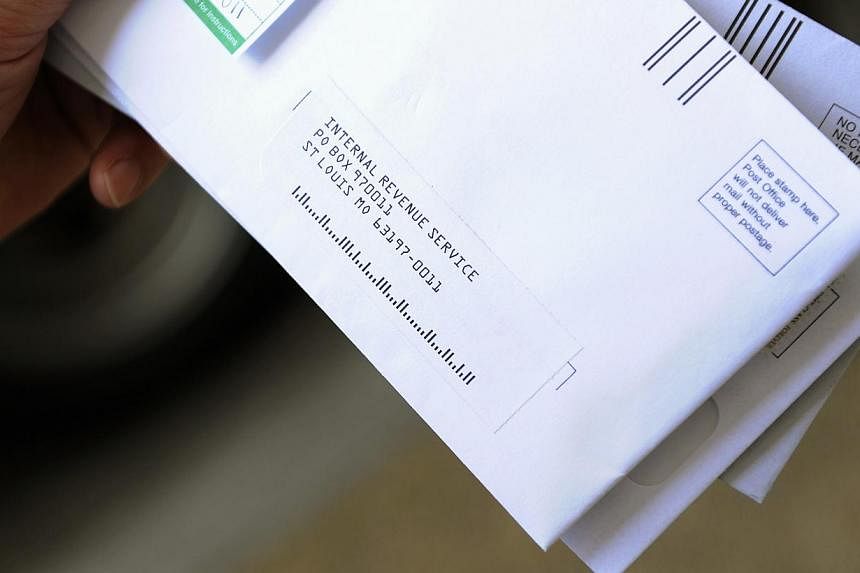Gabriel Zucman is a 27-year-old French economist who decided to solve a puzzle: Why do international balance sheets each year show more liabilities than assets, as if the world is in debt to itself?
Over the last couple of decades, the few international economists who have addressed this question have offered a simple explanation: tax evasion.
Money that, say, leaves the US for an offshore tax shelter is recorded as a liability in the country, but it is listed nowhere as an asset - its mission, after all, is disappearance. But until now, the economists lacked hard numbers to confirm their suspicions.
By analysing data from by central banks in Switzerland and Luxembourg on foreigners' bank holdings, then extrapolating to other tax havens, Professor Zucman has put creditable numbers on tax evasion, showing that it's rampant - and a major driver of wealth inequality. He estimates - conservatively, he says - that US$7.6 trillion (S$9.5 trillion) - 8 per cent of the world's personal financial wealth - is stashed in tax havens.
If all this illegally hidden money were properly recorded and taxed, global tax revenues would grow by more than US$200 billion a year, he believes. And these numbers do not include much larger corporate tax avoidance, which usually follows the letter but hardly the spirit of the law.
According to Prof Zucman's calculations, 20 per cent of all corporate profits in the United States are shifted offshore, and tax avoidance deprives the government of a third of corporate tax revenues.
Corporate tax avoidance is so widespread that from the late 1980s until now, the effective corporate tax rate in the US has fallen from 30 per cent to 15 per cent, he found, even though the tax rate has not changed.
Prof Zucman, an assistant economics professor at the London School of Economics, is part of a wave of data-focused economists led by his mentor Thomas Piketty of the Paris School of Economics. His book on tax evasion, The Missing Wealth Of Nations, was a bestseller in France last year.
Prof Zucman's tax evasion numbers are big enough to upend common assumptions, like the notion that China is now the world's "owner" while Europe and America have become large debtors. The idea of the rich world's indebtedness is "an illusion caused by tax havens", he wrote last year.
In fact, if offshore assets were properly measured, Europe would be a net creditor, and US indebtedness would fall from 18 per cent of GDP to 9 per cent. Only multinational corporations and people with at least US$50 million in financial assets usually have the resources to engage in offshore tax evasion. Since the less wealthy continue paying taxes, the practice deepens wealth inequality.
Indeed, fresh efforts in the US to curb personal tax evasion, codified in the 2010 Foreign Account Tax Compliance Act, have armed the Internal Revenue Service with strong sanctions to levy on foreign banks that fail to disclose accounts held by US residents.
Prof Zucman finds it "no coincidence" that the era of widespread tax evasion began during the Ronald Reagan years (1981-89), with the rise of the idea that government is a beast that must be starved. Because large-scale tax evasion skews key economics statistics, it hampers officials' ability to manage the economy or make policy, he says. It erodes respect for the law, preventing the government from carrying out one of its essential tasks. And it discourages job creation, since it rewards people and corporations for keeping money overseas, instead of investing it domestically.
Despite the obstacles that the tax compliance Act faces, Prof Zucman believes its passage marked a global turning point, starting an era of "remarkable progress" in reducing bank secrecy. Even so, only a global approach has a chance of stopping tax evasion. Its most important feature would be a global financial registry, which would track wealth ownership.
A registry would make it impossible for multinationals to falsely attribute profits to tax havens instead of the countries where the profits should be taxed. What's beyond question is that there is no economic, political or moral justification for tax evasion - it exists only because of the political influence that wealth buys.
A society that fails to fight widespread tax evasion proclaims its own corruption.
NEW YORK TIMES

